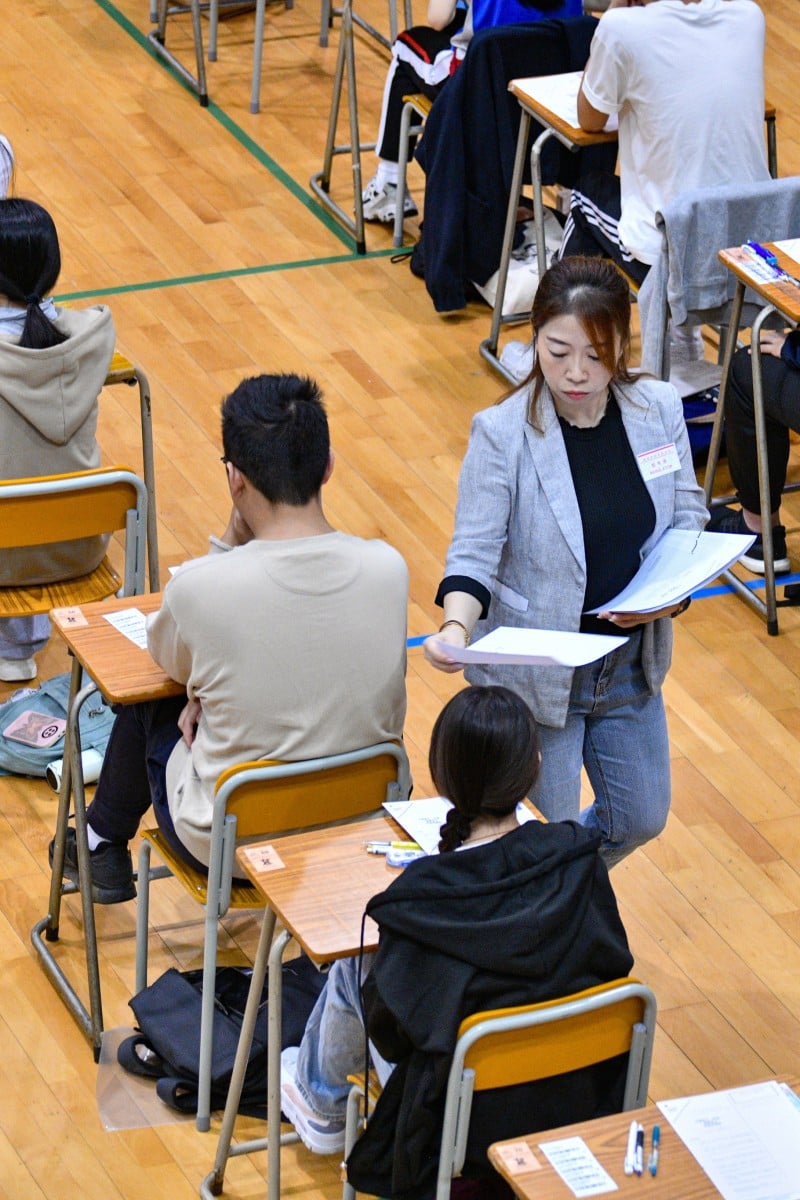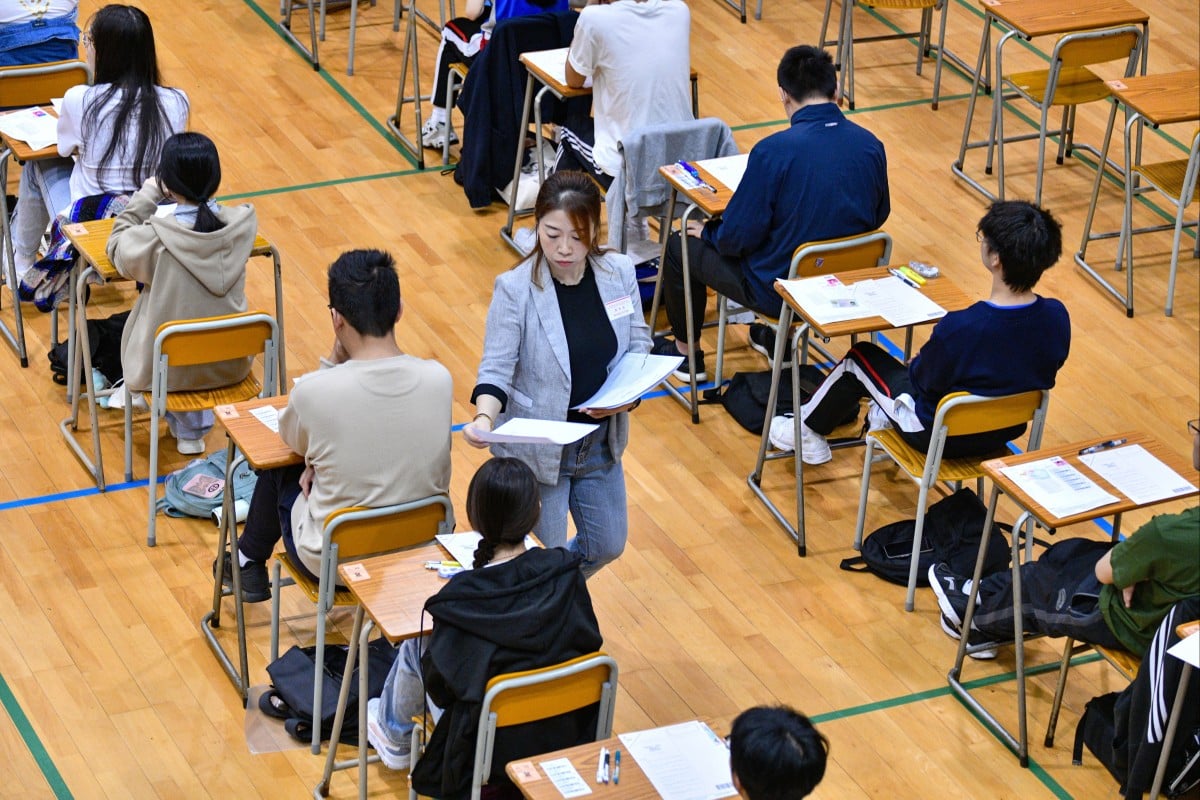
Face Off: Should DSE candidates be able to choose their core subjects for the exams?
- Each week, two readers debate a hot topic in a showdown that doesn’t necessarily reflect their personal viewpoints
- This week, they discuss whether it is feasible for pupils to pick which courses they will take in the DSE examinations
 What do you think about this topic? Photo: Handout
What do you think about this topic? Photo: HandoutIf you are interested in joining future Face Off debates, fill out this form to submit your application.
For
Hailey Ting, 15, Sha Tin Tsung Tsin Secondary School
According to the Hong Kong Examination and Assessment Authority, candidates for the Hong Kong Diploma of Secondary Education (DSE) must take four core subjects.
These include Chinese language, English language, mathematics and citizenship and social development.
The main reason for studying for the DSE is to apply to a university. Most Hong Kong universities have a minimum subject requirement of studying these four core subjects with two to three electives.
However, for many students, the core subjects required for DSE are unrelated to what they will study in university.
For instance, if one chooses to study literature or history, is it essential for them to reach a standard in mathematics? If one decides to study biochemistry, is it necessary for them to study Chinese? Most likely, this is not the case.
Furthermore, studying the four core subjects may not reflect the true capabilities of DSE candidates.
The DSE Chinese paper, often known as sei mong zi gyun, which means “the paper of death”, often causes DSE candidates to lose their “ticket” to university.
1 in 10 Hong Kong ethnic minority pupils get government-funded university spot
According to the Hong Kong Examination and Assessment Authority, in 2023 and 2022, less than 60 per cent of the candidates passed. This may be because many students failed to apply to university because they struggled with the Chinese language paper.
There are some cases where universities make exceptions for talented individuals. However, it would be even better if they didn’t even need to study the subjects they are not interested in.
Local secondary schools usually require students to study the core subjects and several electives. Since the topic coverage in the DSE is extensive, this may be a burden to some students and cause them anxiety. If this policy is implemented, students will get more time to rest and perhaps study subjects that they favour.
Their mental well-being can also be significantly improved, allowing candidates to pursue their interests and strengths.
The admission policy of Hong Kong’s universities should also be amended to facilitate the modification of the DSE policy.
Against
Chelsea Chen, 14, St Paul’s Co-educational College
While some may believe that Diploma of Secondary Education (DSE) candidates should be allowed to select their core subjects for the exams, I strongly oppose this motion. The basic knowledge learned from the four core subjects is essential and should not be omitted.
Chinese and English languages train students in basic writing and speaking skills. These are essential while interacting with others or performing tasks in the future. Mathematics enhances problem-solving, reasoning and critical thinking skills. Citizenship and social development cultivates our understanding of the society we live in. If students were to replace any of the core subjects with an elective or simply omit them, they may not be able to hone specific skills. This will hinder their educational and professional development in the future. The main focus of education is to provide a holistic view of each subject and not to cater to individual preferences.
The freedom to choose their own core subjects could potentially limit students’ future opportunities. By making these decisions as early as Form Three, students may inadvertently close off certain paths that they might have otherwise explored. Therefore, the current system of four core subjects and up to three electives provides a balanced approach, allowing students to be equipped with a broad range of skills.
Explainer: What’s the big deal about the DSE exam leak?
For example, choosing sciences as core subjects may be beneficial for students who want to become doctors. However, they would also need good linguistic skills, which would be underdeveloped in this proposed system. Students should not just focus on their final grade on the DSE but rather explore broad areas during education.
The proposed system could potentially blur the benchmarks for university acceptance. The current arrangement provides a transparent and standardised assessment of each student’s strengths and weaknesses. If students were to choose only their best subjects, universities would be unable to assess the applicants’ true capabilities accurately. This could lead to a situation where students are admitted to universities based on their performance in a limited set of subjects, potentially overlooking their overall academic potential.
